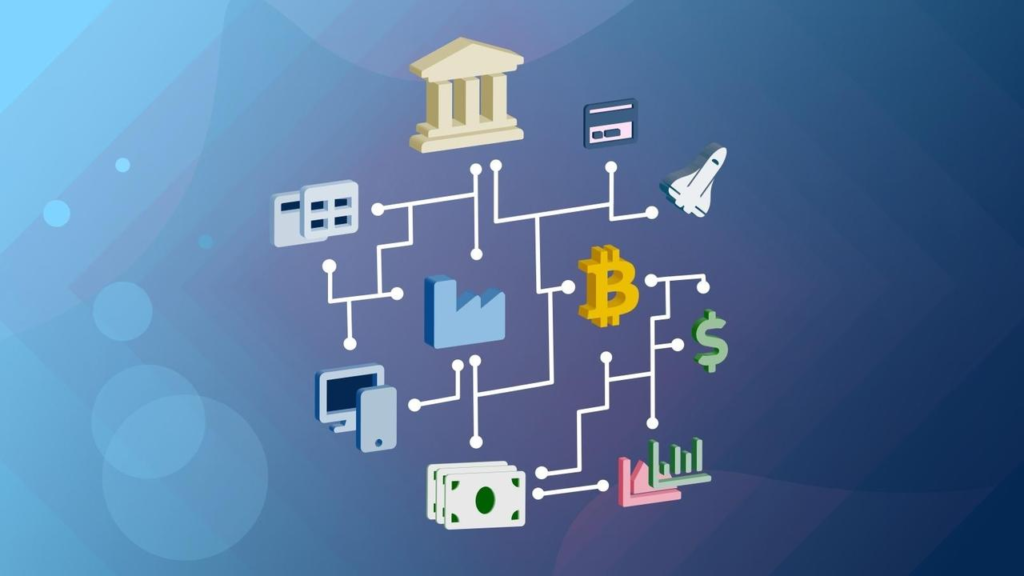When the world is going through an economic crisis, it means that every industry needs to find ways to cut costs and become more efficient. It’s a ton of pressure for any business, but especially one that deals with money.
Fortunately, there are ways to do just that in the financial industry. It’s all about streamlining processes, increasing efficiency, and reducing costs by investing in new technology. With that being said, let’s take a look at how decentralized finance will revolutionize the world of finance.
What is Decentralized Finance?

Decentralized finance is an extension of decentralized computing or the process of removing central authority from a system. In the context of finance, this means replacing current institutional systems and practices with decentralized, blockchain-based alternatives. And, in doing so you can create new financial products and services.
It is also referred to as “finance without banks”. This is because decentralized finance is a system that enables peer-to-peer financial exchanges without the need for financial intermediaries, like banks, to facilitate the transaction. This means that users can send funds directly to other users without going through a bank account.
It is a type of financial engineering that uses computer science and cryptography to design new financial products and services, as well as redesign existing ones.
Decentralized finance is a growing field, as it is currently being utilized in other industries as well.
How Will Decentralized Finance Change the World of Finance?
Decentralized finance can make a world of difference to the financial services industry by improving the existing system and making it more efficient. The decentralized nature of decentralized finance allows it to provide faster and cheaper services to users, and its automation means that it requires less human intervention.
It also allows for greater equity and access to financial services, as it can reach a wider variety of users than the current system. It also has the potential to create more financial inclusion, as decentralized finance provides an alternative to traditional banking services.
Decentralized finance has the potential to change the world of finance by improving financial services, gaining efficiency and speed, improving accessibility, and reducing risk in the financial system.
The Problems with Financial Technology Currently

Currently, financial institutions face issues related to their in-house technology, including high costs, data security issues, and a lack of scalability.
Decentralized finance can help address these issues by providing financial institutions with cheaper, more secure, and more scalable technology to run their operations. It can also help improve the existing institutional system by providing a decentralized solution to the issues that plague it.
Utilizing Blockchain for Decentralized Finance

A key feature of decentralized finance is its use of blockchain technology. Blockchain is a decentralized, distributed ledger that can be used to track financial transactions. A blockchain is essentially a digital record of transactions that are kept in a continuous “chain” of “blocks” that are linked together through cryptography.
The information contained in the blocks is available to everyone in the network. Because blockchain is decentralized, it allows for peer-to-peer transactions (transactions between two parties without intermediaries). This means that financial transactions can happen directly between two parties without the need for banks or other intermediaries to verify the transaction and/or facilitate the payment.
Decentralized finance that utilizes blockchain can be equipped with smart contracts or computer programs that are stored on a blockchain network. These smart contracts can automatically execute the terms of an agreement between two parties once certain conditions have been met.
DeFi that uses blockchain can also provide a more secure service by using cryptography. Cryptography is the use of codes and algorithms to secure data. The cryptography used in the decentralized finance industry is designed specifically to secure blockchain technology, ensuring that transaction data is kept private and secure.
Bottom-Up Institutional Investment in Fintech Startups
Another way that decentralized finance will revolutionize the financial services industry is through its bottom-up approach to institutional investment in fintech startups. It allows institutions to invest in startups that are creating new fintech products and services through a decentralized investment platform.
This means that institutions can pool together their investment capital to make larger investments in promising fintech companies, but without having to rely on the funds of one single investor. In return, fintech companies that receive these investments benefit from having more capital to execute their business ideas.
Decentralized investment funds operate on blockchain technology and can use smart contracts to ensure that all parties involved in the investment process are operating according to the agreed-upon terms.
Conclusion
Decentralized finance is an innovative and revolutionary way of financing that has the ability to change the financial services industry as we know it. The decentralized nature of decentralized finance allows it to provide faster, cheaper, and more secure financial services to its users.
This also has the potential to provide greater equity and access to financial services, as it can reach a wider variety of users than the current system. DeFi has the potential to revolutionize the world of finance by improving financial services, gaining efficiency and speed, improving accessibility, and reducing risk in the financial system.




